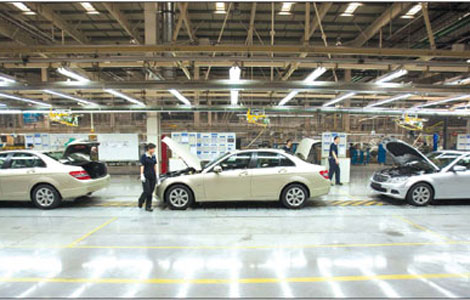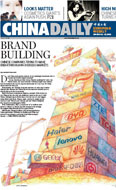Op-Ed Contributors
Will China and the US sink or swim together?
Updated: 2011-02-04 13:59
By Lin Limin (China Daily USA)
During President Hu Jintao's state visit to the United States, Secretary of State Hillary Clinton said in a speech that "when you are in the same boat, you have to row in the same direction. We are in the same boat". That line shows her positive outlook on the future of the US' relationship with China, but it's far from an accurate description.
China and the US are indeed in the same boat, but I'm not sure each country will row in the same direction.
The US and China are the first and the second largest economies in the world with one-third of the world's total economic output. Economic cooperation between the two has expanded year after year. Last year, trade volume between the two surpassed $400 billion. The relationship between the two powers has a direct effect on global stability and prosperity. China and the US are undoubtedly in the same boat and they have to face not only their own challeges but those of the world as well.
What the two countries face is a more complicated and evolving world. From different perspectives and from different national interests, we can say that both China and the US are heading toward a number of touchy issues.
After the Cold War, the US has regarded itself as the only superpower in the world. The wide range of its anti-terrorism efforts has shown both the US' power and its ability to exhaust resources. The US is still caught in the battle with al-Qaida in Afghanistan and facing nuclear risks from Iran and the Democratic People's Republic of Korea. It is also still suffering from its depression. Though its economy recovered a bit last year, the US government has to tackle a series of serious economic problems including balancing its budget and trade deficits. Prospects for the US economy remain unknown.
China, which enjoyed an economic growth rate of 10.3 percent last year, has recovered from the global economic depression, but it, too, has a lot of issues to worry about. China has to figure out how to sustain economic development in a balanced and environmentally safe way. It also has to deal with its surging market and issues about dwindling resources, as well as international relations between other countries.
From a broader perspective, China and the US should learn how to push the global economy out of the marsh to achieve stability and prosperity for the Asia-Pacific region and the world. Solving issues on the proliferation of weapons of mass destruction, terrorism, drugs, international crimes, climate change and natural disasters needs cooperation and that first comes from China and the US.
China and the US are not only in the same boat, but they're in a boat that is wallowing in rough waters and heavy storms. That means China and the US should and must support each other in the boat.
When it comes to how the two nations will work together, I think China and the US should trust each other, which is the most difficult part. They diverge not only on ideology but also on trade, the exchange rate, human rights and questions over Taiwan and Tibet.
A joint communiqu released during President Hu's visit emphasizes strategic trust. The US acknowledged that China's prosperity benefits the US and the world. China recognized the role that the US plays in the stability and prosperity of Asia and the world. The two countries should put aside their differences to seek a common ground based on this foundation. China and the US can no longer sit in the boat safely, but they must support each other practically and achieve their own national interests while promoting world peace and development.
The author is a scholar with the China Institutes of Contemporary International Relations.
E-paper

Factory fever
Despite auto manufacturing bubble scare, car giants gear up expansion of factories.
Dressed for success
Fabric of change
High spirits
Specials

Earthquake Hits Japan
A massive 8.8 magnitude quake hit the northeast coast of Japan on March 11,2011.

NPC & CPPCC sessions
Lawmakers and political advisers gather in Beijing to discuss major issues.

Slide: Japan quake
Devastating earthquake and tsunami left millions without water, electricity, homes or heat.
